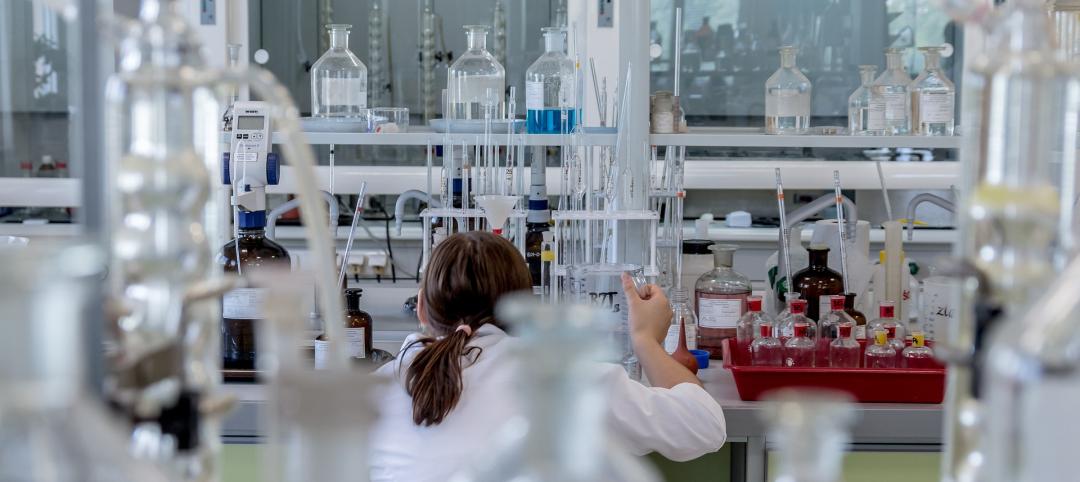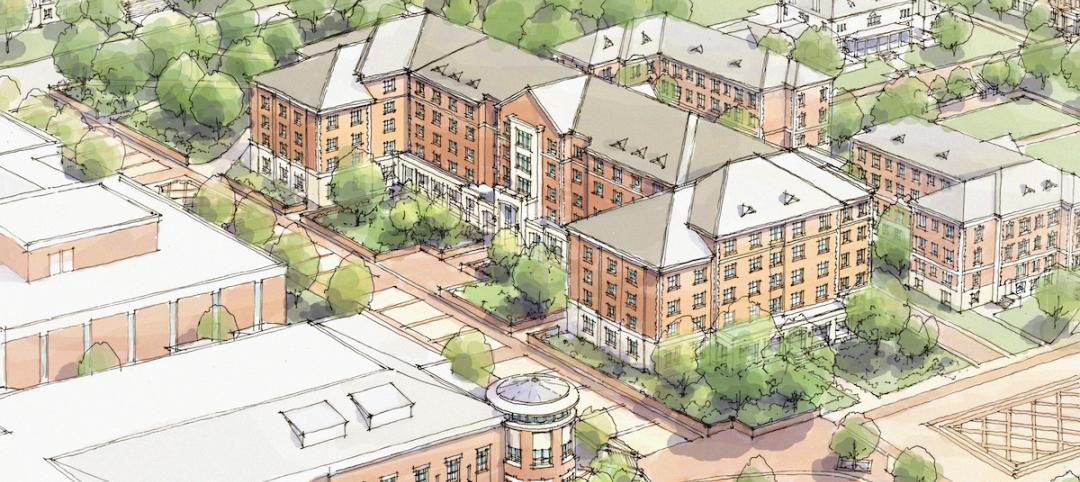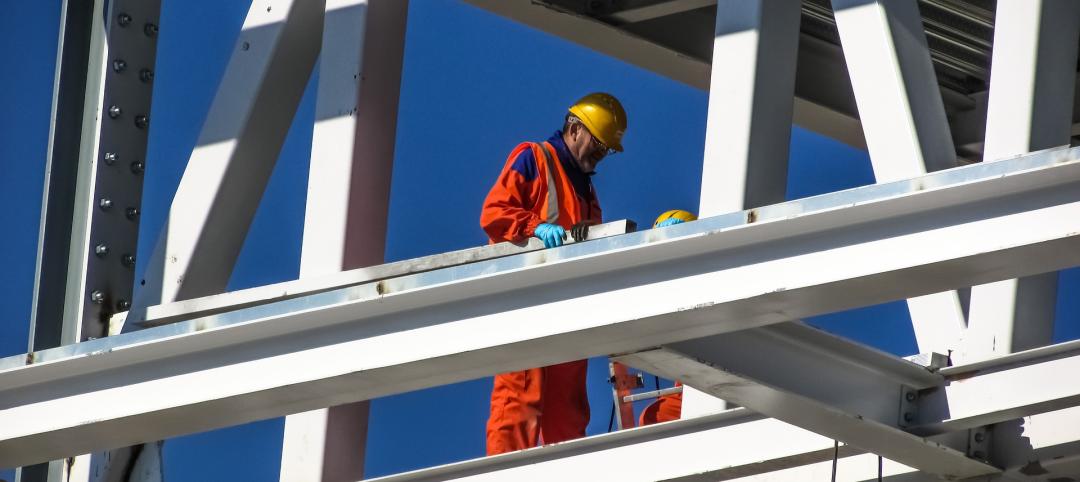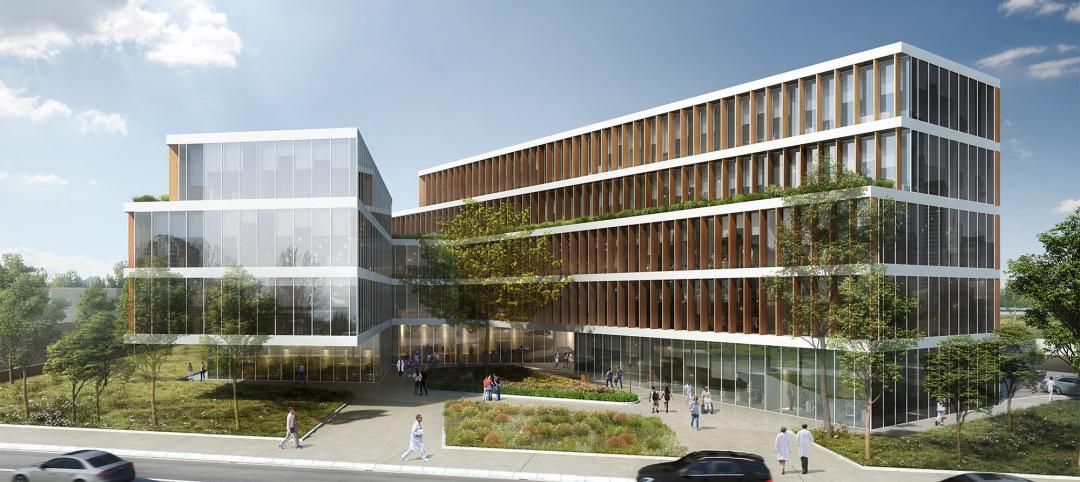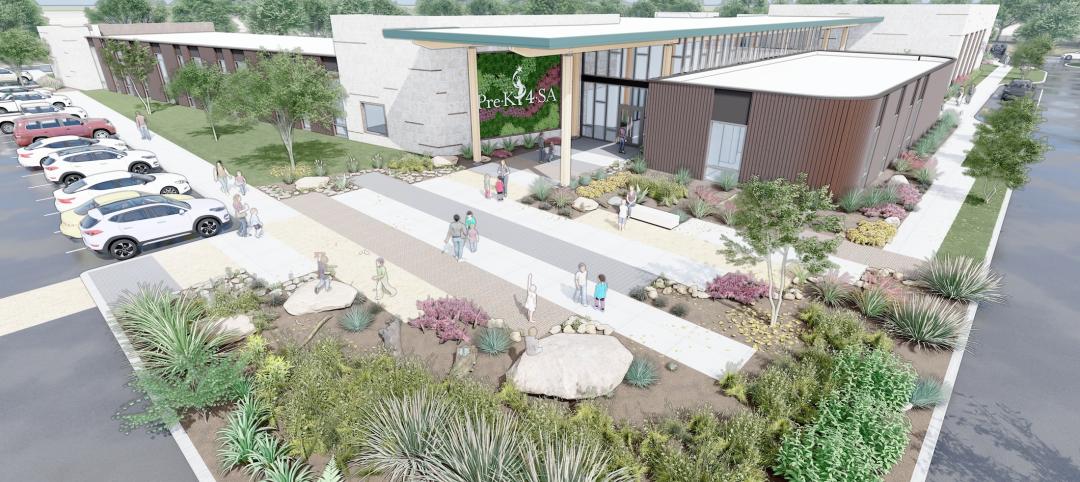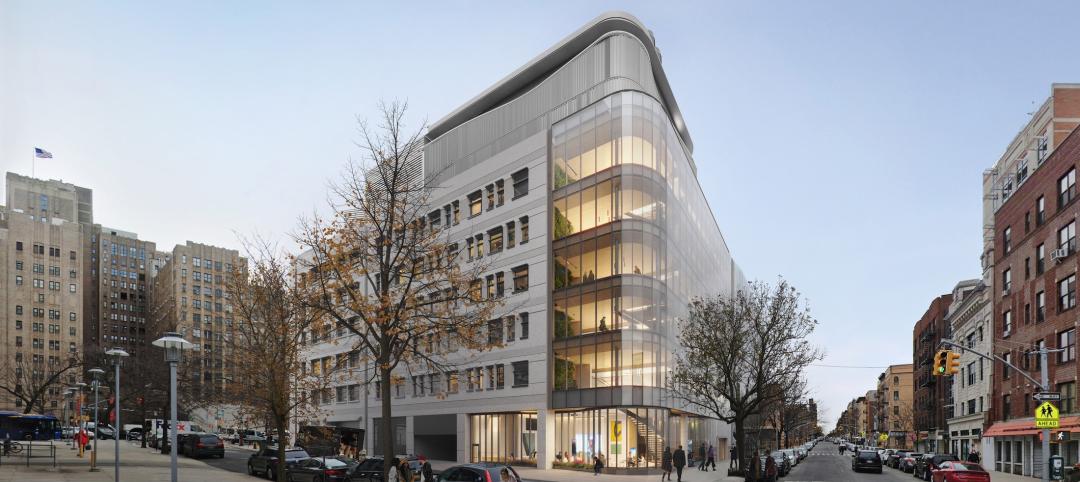The completion of the Zero Energy Research Laboratory at the University of North Texas will give students and researchers the tools to study the next generations of sustainable and renewable energy technologies.
The lab—the only one of its kind in Texas—is designed specifically to test various energy technologies and systems in order to achieve a net-zero consumption of energy.
Construction on UNT’s new facility began in July 2011. A ribbon cutting ceremony will be held at UNT’s Discovery Park on Friday, April 20 to celebrate the completion of the new facility.
The structure has a number of advanced energy technologies integrated into its 1,200-sf space, including a geothermal heat pump, a radiant heated floor slab, solar panels, a building energy monitoring and control system and a rainwater collection system, to name a few. Outside, the facility has a residential-scale wind turbine and an electric vehicle charging station.
The doors, windows, roof and supporting energy efficient equipment are designed to be easily expanded and exchanged so that researchers can analyze new building materials. Dr. Nandika D’Souza and her research team hope to use the facility to test their plant-based building materials eventually. D’Souza is developing materials made from the fibers of the kenaf plant, a cousin to bamboo, with a $600,000 grant from the National Science Foundation.
D’Souza is a key member of the Renewable Bioproducts and the Renewable Energy and Conservation research clusters. Both interdisciplinary research groups will take advantage of this unique facility to conduct cutting edge sustainability and energy research.
Dr. Yong Tao, chair of the Department of Mechanical and Energy engineering at UNT and the PACCAR Professor of Engineering, spearheaded the design and creation of the lab. Previously, Tao oversaw a similar project at Florida International University, where he served as an associate dean of their College of Engineering and Computing.
Tao also served as the director of the Future House USA project, an initiative that brought together academics, builders, industry sponsors and lobbyists to create a 3,200 square-foot zero-net energy house. The house was built in Beijing and displayed during the 2008 Olympic Games.
This project is funded at $1,150,000 with a combination of HEAF (higher education assistance funds), operating funds and gifts-in-kind. It was made possible by donations from Schneider Electric, NuconSteel, Axium Solar, H2Options/BlueScope Water, Benchmark Precision Buildings and Acme Brick. Jacobs Engineering Group Inc. is the architect of record for the facility and Nouveau Construction served as the general contractor. BD+C
Related Stories
Codes and Standards | Apr 12, 2024
ICC eliminates building electrification provisions from 2024 update
The International Code Council stripped out provisions from the 2024 update to the International Energy Conservation Code (IECC) that would have included beefed up circuitry for hooking up electric appliances and car chargers.
Urban Planning | Apr 12, 2024
Popular Denver e-bike voucher program aids carbon reduction goals
Denver’s e-bike voucher program that helps citizens pay for e-bikes, a component of the city’s carbon reduction plan, has proven extremely popular with residents. Earlier this year, Denver’s effort to get residents to swap some motor vehicle trips for bike trips ran out of vouchers in less than 10 minutes after the program opened to online applications.
Laboratories | Apr 12, 2024
Life science construction completions will peak this year, then drop off substantially
There will be a record amount of construction completions in the U.S. life science market in 2024, followed by a dramatic drop in 2025, according to CBRE. In 2024, 21.3 million sf of life science space will be completed in the 13 largest U.S. markets. That’s up from 13.9 million sf last year and 5.6 million sf in 2022.
Multifamily Housing | Apr 12, 2024
Habitat starts leasing Cassidy on Canal, a new luxury rental high-rise in Chicago
New 33-story Class A rental tower, designed by SCB, will offer 343 rental units.
Student Housing | Apr 12, 2024
Construction begins on Auburn University’s new first-year residence hall
The new first-year residence hall along Auburn University's Haley Concourse.
K-12 Schools | Apr 11, 2024
Eric Dinges named CEO of PBK
Eric Dinges named CEO of PBK Architects, Houston.
Construction Costs | Apr 11, 2024
Construction materials prices increase 0.4% in March 2024
Construction input prices increased 0.4% in March compared to the previous month, according to an Associated Builders and Contractors analysis of the U.S. Bureau of Labor Statistics’ Producer Price Index data released today. Nonresidential construction input prices also increased 0.4% for the month.
Healthcare Facilities | Apr 11, 2024
The just cause in behavioral health design: Make it right
NAC Architecture shares strategies for approaching behavioral health design collaboratively and thoughtfully, rather than simply applying a set of blanket rules.
K-12 Schools | Apr 10, 2024
A San Antonio school will provide early childhood education to a traditionally under-resourced region
In San Antonio, Pre-K 4 SA, which provides preschool for 3- and 4-year-olds, and HOLT Group, which owns industrial and other companies, recently broke ground on an early childhood education: the South Education Center.
University Buildings | Apr 10, 2024
Columbia University to begin construction on New York City’s first all-electric academic research building
Columbia University will soon begin construction on New York City’s first all-electric academic research building. Designed by Kohn Pedersen Fox (KPF), the 80,700-sf building for the university’s Vagelos College of Physicians and Surgeons will provide eight floors of biomedical research and lab facilities as well as symposium and community engagement spaces.




